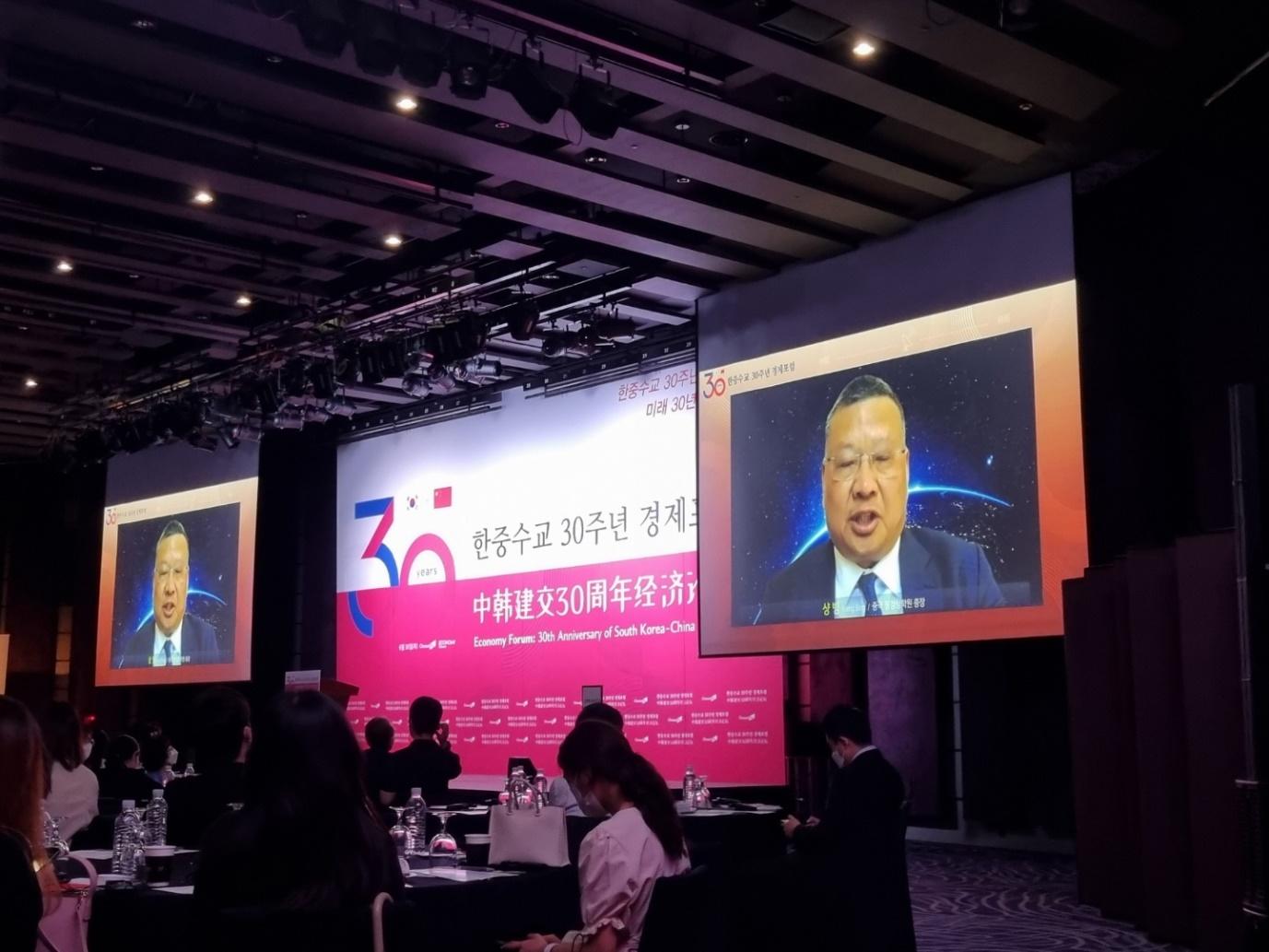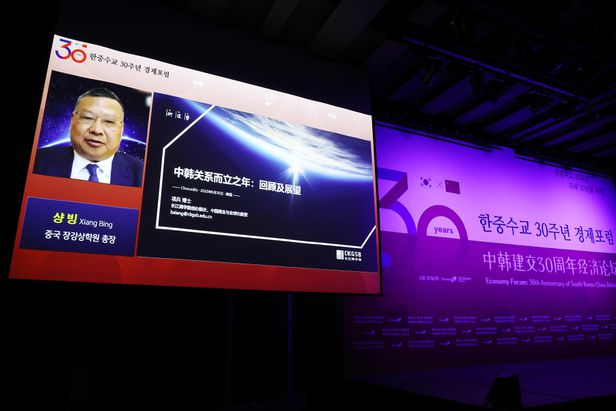

[June 30, 2022, Seoul] To mark the 30th anniversary of South Korea and China’s diplomatic relations on August 24, 2022, the founding dean of Cheung Kong Graduate School of Business, Dr. Xiang Bing, delivered a keynote speech at the “Economic Forum: 30th Anniversary of China-Korea”, hosted by South Korea’s leading media organization, Chosun Media.
Dean Xiang Bing, a leading expert on global governance and the economy, shared his unique point-of-view on the significance of China and South Korea’s economic cooperation through his theory of the Confucian Economic Sphere (CES). CES is a term introduced by Dean Xiang to refer to the countries who share Confucian principals, including Greater China, Japan, South Korea, Singapore and Vietnam. He said, “These countries have made significant impacts on the global economy despite their different political systems.”
Accounting for 27.2% and 28.1% of the world’s total production and commodity trade respectively in 2021, Dean Xiang believes that countries in the Confucian Economic Sphere have great potential to shape and contribute to addressing the world’s challenges, such as income and wealth inequality, diminishing social mobility, and climate change. He said, “In the 300 years since the Enlightenment, almost all global economic, political, and social problems and solutions have been proposed and led by the West. Now this unilateral trend must change.”
In addition, Dean Xiang noted that only 13 of the 101 countries classified as middle-income countries in 1960 managed to escape the middle-income trap and become high-income, developed countries. Six of these, including China and Vietnam, belong to the Confucian Economic Sphere.
Dean Xiang cited the influence of Confucius’ ideas – such as fostering the elite through education – and Confucian virtues – benevolence, righteousness, propriety, wisdom, and loyalty – as the reason to why these countries have achieved economic success. He believes that these Confucian economies are competitive but also complementary, and that there is no reason why Asia cannot produce innovative breakthroughs and cutting-edge thinkers like David Hume and Immanuel Kant in the future.
Regarding South Korea-China relations, Dean Xiang noted, “The economic relationship between South Korea and China have deepened due to the Free Trade Agreement signed in 2014 and the newly ratified Regional Comprehensive Economic Partnership.” He also added that South Korea’s success in reducing economic inequality can be a valuable lesson for China.